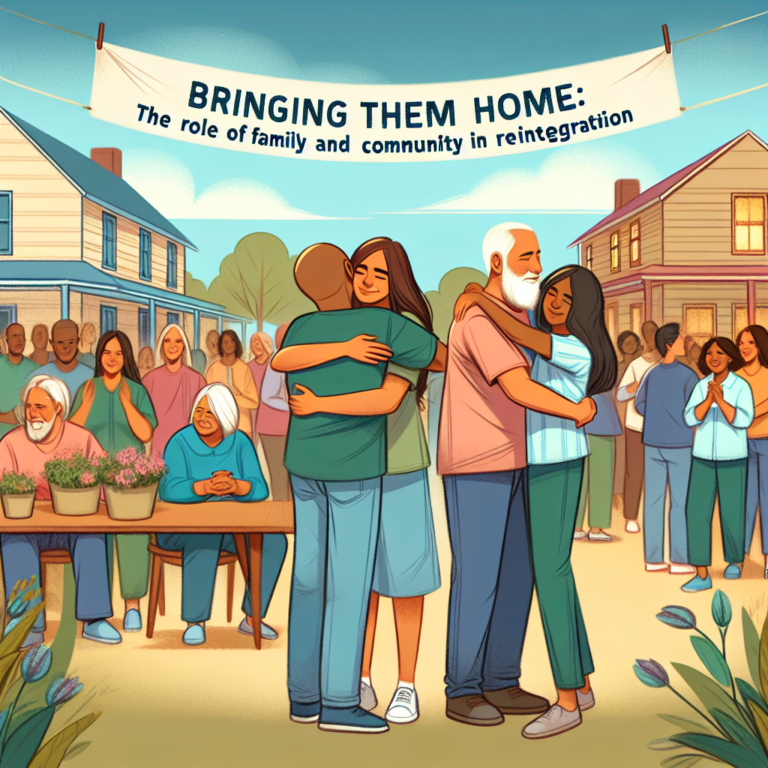
Introduction
Every day, countless individuals step into the role of a caregiver, often without recognition or gratitude. These passionate individuals are the backbone of our society, providing critical support to family members with chronic illnesses, disabilities, or age-related issues. They are the unsung heroes, silently juggling their responsibilities while managing their own lives. In this article, we celebrate their dedication, share their stories, and shed light on the incredible impact they have on families and communities.
The Significance of Family Caregivers
Family caregivers are essential players in the healthcare system. According to the National Alliance for Caregiving, over 53 million Americans provide unpaid care to an adult or child. This figure underscores the profound influence caregivers have on the emotional and physical well-being of their loved ones.
Emotional and Financial Impact
Emotional Support: Caregivers often provide not just physical assistance but also emotional support, which plays a crucial role in the recovery and mental health of the individuals they care for.
- Financial Contribution: Research reveals that most caregivers spend about $7,000 annually out-of-pocket for caregiving-related expenses. This financial strain can lead to stress and significant lifestyle changes for caregivers.
Case Study: The Garcia Family
Take the Garcia family, for instance. Maria, a 38-year-old mother of three, became the primary caregiver for her ailing father, who was diagnosed with Alzheimer’s disease. The emotional and financial burden quickly mounted. Maria reported feeling isolated and anxious, highlighting the importance of support systems for caregivers.
Analysis
Maria’s story illustrates not just the challenges faced by family caregivers but also the necessity of community resources. Providers often overlook the needs of these caregivers, which can lead to burnout and deteriorated mental health.
The Personal Struggles of Caregivers
Most caregivers will tell you that providing care can be a double-edged sword. They experience feelings of fulfillment when seeing their loved one improve but also face moments of overwhelm and fatigue.
Common Emotional Challenges
Isolation: Caregivers often feel alone in their struggles, as many people outside the home may not fully understand their sacrifices.
- Burnout: The round-the-clock nature of caregiving can lead to physical and emotional exhaustion known as caregiver burnout.
Case Study: John’s Journey
John, a single father, cared for his disabled son after a car accident. Despite the joy he found in supporting his son, John admitted to experiencing burnout from lack of sleep and social isolation.
Analysis
John’s experiences underline the critical need for both individual and systemic support for caregivers. Support groups, therapy, and community resources can mitigate the burdensome emotions associated with caregiving.
The Vital Need for Support
Support systems are crucial for sustaining caregivers’ well-being. Yet, many caregivers struggle to find resources and help.
Types of Support Available
Emotional Support: Many communities offer support groups that allow caregivers to share their experiences and feelings.
- Respite Care: Programs exist that provide temporary relief for caregivers, allowing them to take a much-needed break.
Case Study: Community Action Network
The Community Action Network in California runs a respite program that provides short-term care for caregivers. Laurie, a participant, explained that having a few hours each week to reconnect with herself made a significant difference in her mental health.
Analysis
Laurie’s experience speaks to the effectiveness of community programs in alleviating caregiver stress, allowing them to recharge and return stronger to their responsibilities.
Celebrating Their Contributions
Acknowledging the sacrifices and contributions of family caregivers can significantly improve their well-being and encourage others to step into caregiving roles.
Ways to Celebrate Caregivers
Create Awareness: Celebrating National Family Caregivers Month in November raises awareness and provides a platform for sharing stories.
- Host Events: Local communities can organize events that honor caregivers, offering relaxation and education.
Data Visualization: The Impact of Community Support on Caregiver Stress
| Type of Support | Reduction in Caregiver Stress (%) |
|---|---|
| Respite Services | 40% |
| Emotional Support Groups | 35% |
| Financial Assistance | 30% |
Case Study: The Caregiver Recognition Event
A local church organized a Caregiver Recognition Event that garnered a large turnout. Caregivers shared their stories and were honored with certificates. Feedback showed a 50% increase in reported happiness levels post-event.
Analysis
This event showcased the power of community involvement in recognizing the contributions of family caregivers, making them feel valued and appreciated.
Practical Strategies for Caregivers
For those currently in the role of family caregivers, employing practical strategies can significantly ease the burden.
Self-Care Techniques
Set Boundaries: It’s essential for caregivers to set limits on their time and energy.
Engage in Activities: Regularly participating in hobbies or interests can provide a needed break.
- Seek Help: Encouraging caregivers to reach out for support, whether through professional services or community, is vital.
Case Study: Maria’s New Approach
After attending a local caregiver workshop, Maria learned strategies for setting boundaries and prioritizing self-care. She started a hobby that brought her joy, significantly improving her overall well-being.
Analysis
Maria’s proactive approach illustrates the transformative power of education and personal strategies in caregiving roles.
The Road Ahead: Advocacy and Policy Change
As caregivers continue to support their families, advocating for policy changes can lead to improved resources and recognition.
Legislative Support
Legislation aimed at providing tax benefits for caregivers or expanding access to respite care can significantly impact the caregiver experience.
Case Study: Advocacy for Caregiver Rights
Organizations like the Family Caregiver Alliance advocate for policy changes to facilitate better support and recognition for caregivers. Their outreach has already began shifting public perception about caregiving.
Analysis
This advocacy effort serves as a powerful reminder of the systemic support needed to uplift the unsung heroes of caregiving.
Conclusion
Family caregivers are the unsung heroes of our society, dedicating their lives to the well-being of their loved ones. It’s time to recognize their enormous contributions and provide the support they deserve. By fostering community awareness, advocating for policy changes, and encouraging self-care, we can honor these dedicated individuals and ensure their voices are heard.
Actionable Takeaway
As you reflect on the sacrifices of family caregivers, consider ways you might contribute—whether through volunteering, advocating, or simply offering a listening ear. Together, we can celebrate the invaluable contributions of our unsung heroes.
FAQs
1. What are some signs of caregiver burnout?
Burnout signs can include chronic fatigue, changes in sleep patterns, irritability, and a sense of hopelessness.
2. How can I find support for caregiving?
Look for local caregiver support groups, community resources, or online support communities.
3. Are there financial resources available for family caregivers?
Many organizations provide financial aid, grants, and tax credits tailored to support caregivers. It’s worth researching local and national options.
4. What can I do if I feel overwhelmed as a caregiver?
Reach out for help from family, consider joining a support group, and prioritize self-care practices.
5. How can communities better support caregivers?
Communities can host events, create awareness programs, provide resources, and promote policies that support caregiver needs.
In celebrating the unsung heroes of caregiving, we not only honor their sacrifices but also pave the way for a more supportive future.















